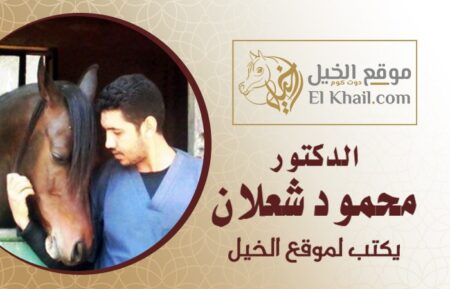If the amount of food provided to the horse is more than what is required to work, then the horse is fattened. Horses that are slow to work may become obese and inoperable. And when the work is irregular and fast, the horse is sometimes lethargic, and sometimes it works to the end and may eat a lot. In order to get the horse to work quickly, this work must be regular, and if this is not possible, the food must be given in quantities that make it not fattening.
And there is no sudden change of diet from a little to a lot because the horse gets sick because of bloody fullness and excessive blood, and sometimes pimples appear on the skin, hair falls out, and fat grains appear called boils, and signs of bloody fullness you recognize from the horse having severe diarrhea before it happens. Two or more, the horse is lethargic, eats little and may refuse to eat and drink a lot, and his body becomes dry.

Likewise, in some parts of his body around his knees, legs, and head, they are soft, his eyes are red and often yellow, his mouth is hot and dry, his viscera constricted, and his urine is of an irregular color. When the stable is closed, the horse sweats. .
And stay for a few days in this state of fever. It appears that sweating relieves the pain, but when it eats a little, the natural healing may take its course if the digestive organs continue to maintain their strength.
And the horse after it falls for two or three days or more of a bloody fever suffers from the pain of infection or other disadvantages that you mentioned, so its legs swell and the meat is in the inside of the hoof is a dangerous consequence.
The treatment of hyperemia is simple, as only starvation causes healing, and phlebotomy changes its consequences immediately, but this operation is not mandatory.
In normal conditions, it is sufficient to cut back or stop the grains by giving a little raw meat, carrots or bran. In terms of medicine, the horse is given a diuretic or an anti-diuretic or another dose, and it is preferable to give the horse when it is empty, and the light sweat is a good treatment. And when the horse is recovering, let him return to the food that his work demands gradually.
In order to prevent excessive bloody, a small amount of each of kohl, natron and sulfur is a useful remedy and should be given an hour before the last meal with a little bran, and this is prevented the day before work.
The book of Prince Muhammad Ali Tawfiq
A treatise on horse therapy






